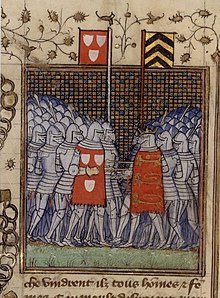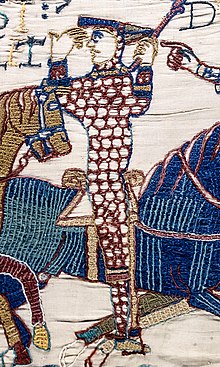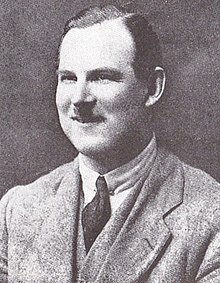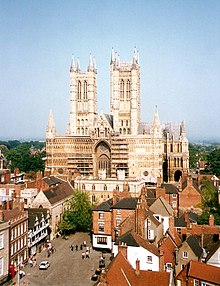Portal:History
The History Portal
History (derived from Ancient Greek ἱστορία (historía) 'inquiry; knowledge acquired by investigation') is the systematic study and documentation of the human past. History is an academic discipline which uses a narrative to describe, examine, question, and analyse past events, and investigate their patterns of cause and effect. Historians debate which narrative best explains an event, as well as the significance of different causes and effects. Historians debate the nature of history as an end in itself, and its usefulness in giving perspective on the problems of the present.
The period of events before the invention of writing systems is considered prehistory. "History" is an umbrella term comprising past events as well as the memory, discovery, collection, organization, presentation, and interpretation of these events. Historians seek knowledge of the past using historical sources such as written documents, oral accounts or traditional oral histories, art and material artifacts, and ecological markers.
Stories common to a particular culture, but not supported by external sources (such as the tales surrounding King Arthur), are usually classified as cultural heritage or legends. History differs from myth in that it is supported by verifiable evidence. However, ancient cultural influences have helped create variant interpretations of the nature of history, which have evolved over the centuries and continue to change today. The modern study of history is wide-ranging, and includes the study of specific regions and certain topical or thematic elements of historical investigation. History is taught as a part of primary and secondary education, and the academic study of history is a major discipline in universities.
Herodotus, a 5th-century BCE Greek historian, is often considered the "father of history", as one of the first historians in the Western tradition, though he has been criticized as the "father of lies". Along with his contemporary Thucydides, he helped form the foundations for the modern study of past events and societies. Their works continue to be read today, and the gap between the culture-focused Herodotus and the military-focused Thucydides remains a point of contention or approach in modern historical writing. In East Asia a state chronicle, the Spring and Autumn Annals, was reputed to date from as early as 722 BCE, though only 2nd-century BCE texts have survived. The title "father of history" has also been attributed, in their respective societies, to Sima Qian, Ibn Khaldun, and Kenneth Dike. (Full article...)
Featured picture
Did you know (auto generated)

- ... that soccer player Danielle Marcano scored four goals in back-to-back games that helped to send the University of Tennessee to the NCAA tournament quarterfinals for the first time in history?
- ... that the historical-romance novel My Tender Matador includes a fictionalized version of the attempted assassination of Augusto Pinochet?
- ... that 25 Water Street was designed to blend in with historic brick buildings that no longer exist?
- ... that the September 11 Digital Archive argues that even its misinformation is useful to the historical record?
- ... that the 1971 Hazelwood massacre was the largest mass murder in the history of "Murder City"?
- ... that the market hall of Niort opened in 1871 and has been listed as a historic monument since 1987?
Alexander of Lincoln (died February 1148) was a medieval English Bishop of Lincoln, a member of an important administrative and ecclesiastical family. He was the nephew of Roger of Salisbury, a Bishop of Salisbury and Chancellor of England under King Henry I, and he was also related to Nigel, Bishop of Ely. Educated at Laon, Alexander served in his uncle's diocese as an archdeacon in the early 1120s. Unlike his relatives, he held no office in the government before his appointment as Bishop of Lincoln in 1123. Alexander became a frequent visitor to King Henry's court after his appointment to the episcopate, often witnessing royal documents, and he served as a royal justice in Lincolnshire.
Although Alexander was known for his ostentatious and luxurious lifestyle, he founded a number of religious houses in his diocese and was an active builder and literary patron. He also attended church councils and reorganised his diocese by increasing the number of archdeaconries and setting up prebends to support his cathedral clergy. Under Henry's successor, King Stephen, Alexander was caught up in the fall from favour of his family, and was imprisoned together with his uncle Roger in 1139. He subsequently briefly supported Stephen's rival, Matilda, but by the late 1140s Alexander was once again working with Stephen. He spent much of the late 1140s at the papal court in Rome, but died in England in early 1148. During his episcopate he began the rebuilding of his cathedral, which had been destroyed by fire. Alexander was the patron of medieval chroniclers Henry of Huntingdon and Geoffrey of Monmouth, and also served as an ecclesiastical patron of the medieval hermit Christina of Markyate and Gilbert of Sempringham, founder of the Gilbertines. (Full article...)
On this day
December 4: Navy Day in India
- 1639 – Jeremiah Horrocks and William Crabtree made the first successful observation of a transit of Venus (example pictured) from Earth.
- 1872 – The American brigantine Mary Celeste was found apparently abandoned under circumstances that remain unknown.
- 1971 – Indo-Pakistani War: The Indian Navy launched a successful attack against the Pakistan Navy at Karachi, sinking three ships with no Indian casualties.
- 1980 – The English rock group Led Zeppelin officially disbanded.
- 2006 – Six black teenagers assaulted a white student in Jena, Louisiana; the subsequent court cases became a cause célèbre for perceived racial injustice in the United States.
- Maerten de Vos (d. 1603)
- Agnes Forbes Blackadder (b. 1875)
- Inder Kumar Gujral (b. 1919)
- Benjamin Britten (d. 1976)
Selected quote
Truth alone will endure, all the rest will be swept away before the tide of time. I must continue to bear testimony to truth even if I am forsaken by all. Mine may today be a voice in the wilderness, but it will be heard when all other voices are silenced, if it is the voice of Truth.
— Gandhi, Indian political and spiritual leader
Related portals
More Did you know...
- ... that on 26 April 1881 HMS Doterel (pictured) exploded, killing 143 of the 155 crew members?
- ... that causes of the deaths at the Berlin Wall included shooting, drowning, suffocation, suicide, and falling from a balloon?
- ... that the 19th-century swindler Bertha Heyman, known as "The Confidence Queen," conned men by pretending to be a wealthy woman who was unable to access her fortune?
- ... that only four great uncial codices have survived until the present day?
- ... that after World War II, Polish resistance organizer and Warsaw Uprising fighter Jan Mazurkiewicz was brutally tortured by the authorities in communist Poland?
- ... that tiny Paederus beetles may have caused some of the ten Plagues of Egypt?
- ... that the only known report of bloodshed during the simulated Nazi invasion of Winnipeg was from a woman who cut her thumb while preparing toast?
- ... that Dacian bracelets were used as currency and votive offerings?
Topics
Categories

History • By period • By region • By topic • By ethnic group • Historiography • Archaeology • Books • Maps • Images • Magazines • Organizations • Fictional • Museums • Pseudohistory • Stubs • Timelines • Chronology • People • Wikipedia historians
WikiProjects
![]() WikiProject History •
Ancient Near East • Australian History • Classical Greece and Rome • Dacia • Former countries • History of Canada • Chinese history • European history • Heraldry and vexillology • Indian history • Jewish history • Medieval Scotland • Mesoamerica • Military history • Middle Ages • History of Science
WikiProject History •
Ancient Near East • Australian History • Classical Greece and Rome • Dacia • Former countries • History of Canada • Chinese history • European history • Heraldry and vexillology • Indian history • Jewish history • Medieval Scotland • Mesoamerica • Military history • Middle Ages • History of Science
WikiProject Time • Days of the Year • Years
WikiProject Biography • Composers • Political figures • Saints • United States Presidents
Things you can do
 |
Here are some tasks awaiting attention:
|
Associated Wikimedia
The following Wikimedia Foundation sister projects provide more on this subject:
-
Commons
Free media repository -
Wikibooks
Free textbooks and manuals -
Wikidata
Free knowledge base -
Wikinews
Free-content news -
Wikiquote
Collection of quotations -
Wikisource
Free-content library -
Wikiversity
Free learning tools -
Wiktionary
Dictionary and thesaurus






















































